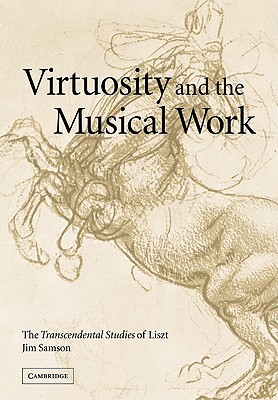
- We will send in 10–14 business days.
- Author: Jim Samson
- Publisher: Cambridge University Press
- ISBN-10: 0521036046
- ISBN-13: 9780521036047
- Format: 17 x 24.4 x 1.4 cm, softcover
- Language: English
- SAVE -10% with code: EXTRA
Reviews
Description
This book is about three sets of etudes by Liszt: the Etude en douze exercices (1826); its reworking as Douzes grandes etudes (1837); and their reworking as Douzes etudes d'execution transcendante (1851). It is also a book about nineteenth-century instrumental music in general because the three works invite the exploration of features characteristic of the early Romantic era in music. These include a composer-performer culture; the concept of virtuosity; the significance of recomposition; music and the poetic; and the consolidation of a musical work-concept.
EXTRA 10 % discount with code: EXTRA
The promotion ends in 18d.03:29:12
The discount code is valid when purchasing from 10 €. Discounts do not stack.
- Author: Jim Samson
- Publisher: Cambridge University Press
- ISBN-10: 0521036046
- ISBN-13: 9780521036047
- Format: 17 x 24.4 x 1.4 cm, softcover
- Language: English English
This book is about three sets of etudes by Liszt: the Etude en douze exercices (1826); its reworking as Douzes grandes etudes (1837); and their reworking as Douzes etudes d'execution transcendante (1851). It is also a book about nineteenth-century instrumental music in general because the three works invite the exploration of features characteristic of the early Romantic era in music. These include a composer-performer culture; the concept of virtuosity; the significance of recomposition; music and the poetic; and the consolidation of a musical work-concept.


Reviews